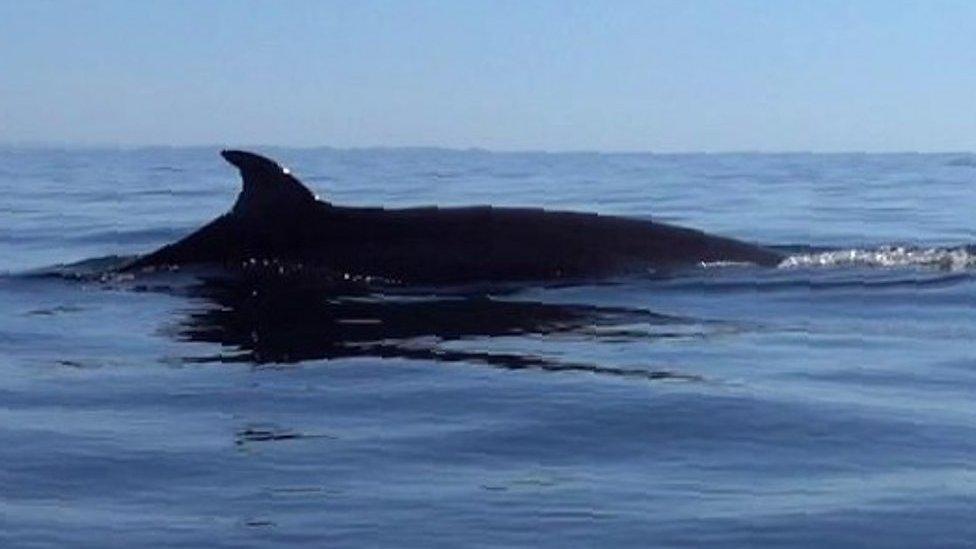Female fin whale found dead on Cornwall beach
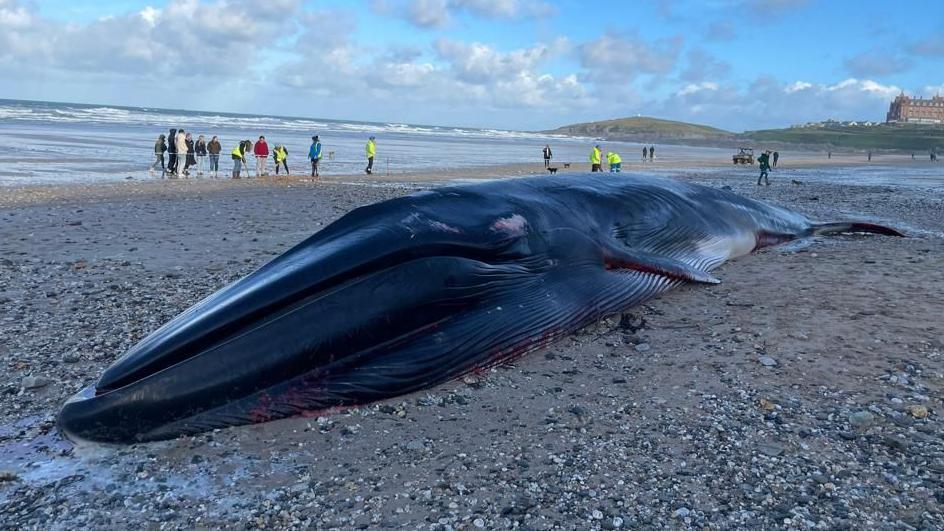
The whale was found on Fistral beach in Cornwall
At a glance
A large fin whale has been found dead on Fistral beach in Cornwall
It was discovered by surfers at first light on Wednesday after earlier being seen swimming in an "uncomfortable state"
Marine experts are working to identify the cause of death and people are asked to avoid the area
- Published
A female fin whale has been found dead on a beach in Cornwall.
Surfers from the Newquay Activity Centre made the discovery at Fistral beach at dawn.
Rob Barber, from the centre, said the 16m (52ft) whale had been seen swimming in an "uncomfortable state" off Towan Head on Tuesday.
A post-mortem examination has begun on the mammal, with the Cornwall Wildlife Trust saying marine experts were working to identify the cause of death.
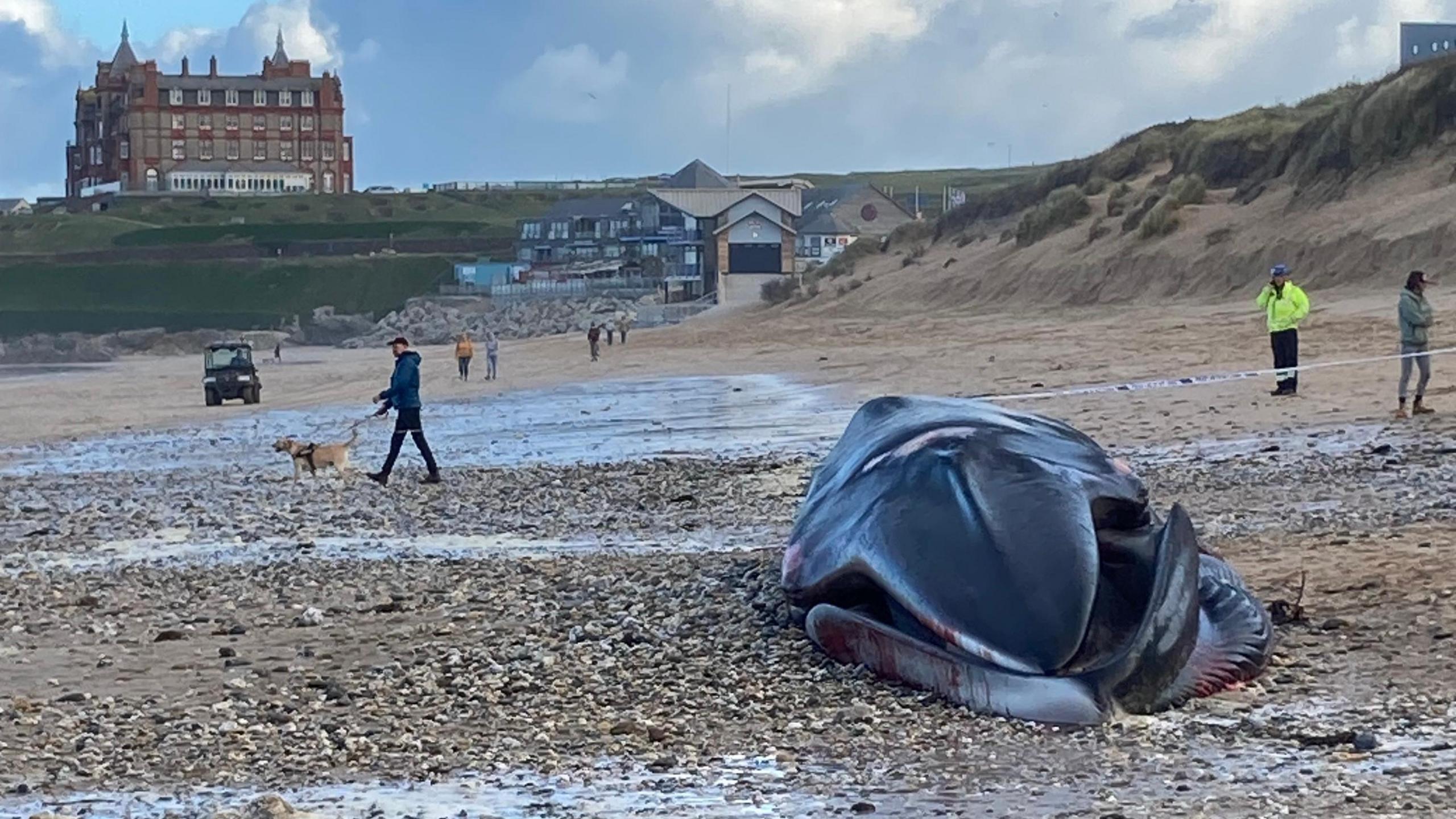
The whale was estimated to be about 16m (52ft) long
Cornwall Council said it was working with the police, coastguard and the RNLI to co-ordinate the removal of the whale.
It said it was "an incredibly challenging and difficult operation requiring specialist machinery".
The council said a cordon would remain in place around the whale while it remained on the beach and asked the public to stay away from the area.
If it has not been washed away by the tide work to remove it is due to begin on Thursday.
The trust said it hoped the whale could be removed from the beach as it could become a shipping hazard if it washed out to sea.
'Shock to wake up to'
The fin whale, external - known as the "greyhound of the sea" for their speed - is the world's second-largest animal after the blue whale.
It is the second one to wash up in Cornwall this year.
Anthea Hawtrey-Collier, a marine standings data officer at the trust, said the animal was believed to be female, probably a juvenile due to its length, and had been very malnourished.
"Looking at the animal, you can see it looks quite unhealthy," she said.
"It's quite a skinny animal and there have been parasites seen on it... which usually indicate poor health."
Abby Crosby, also from the trust, said: "It was a shock to wake up to but it does happen.
"What's really important now is finding out more about the whale and why it died so we can try and learn from it."
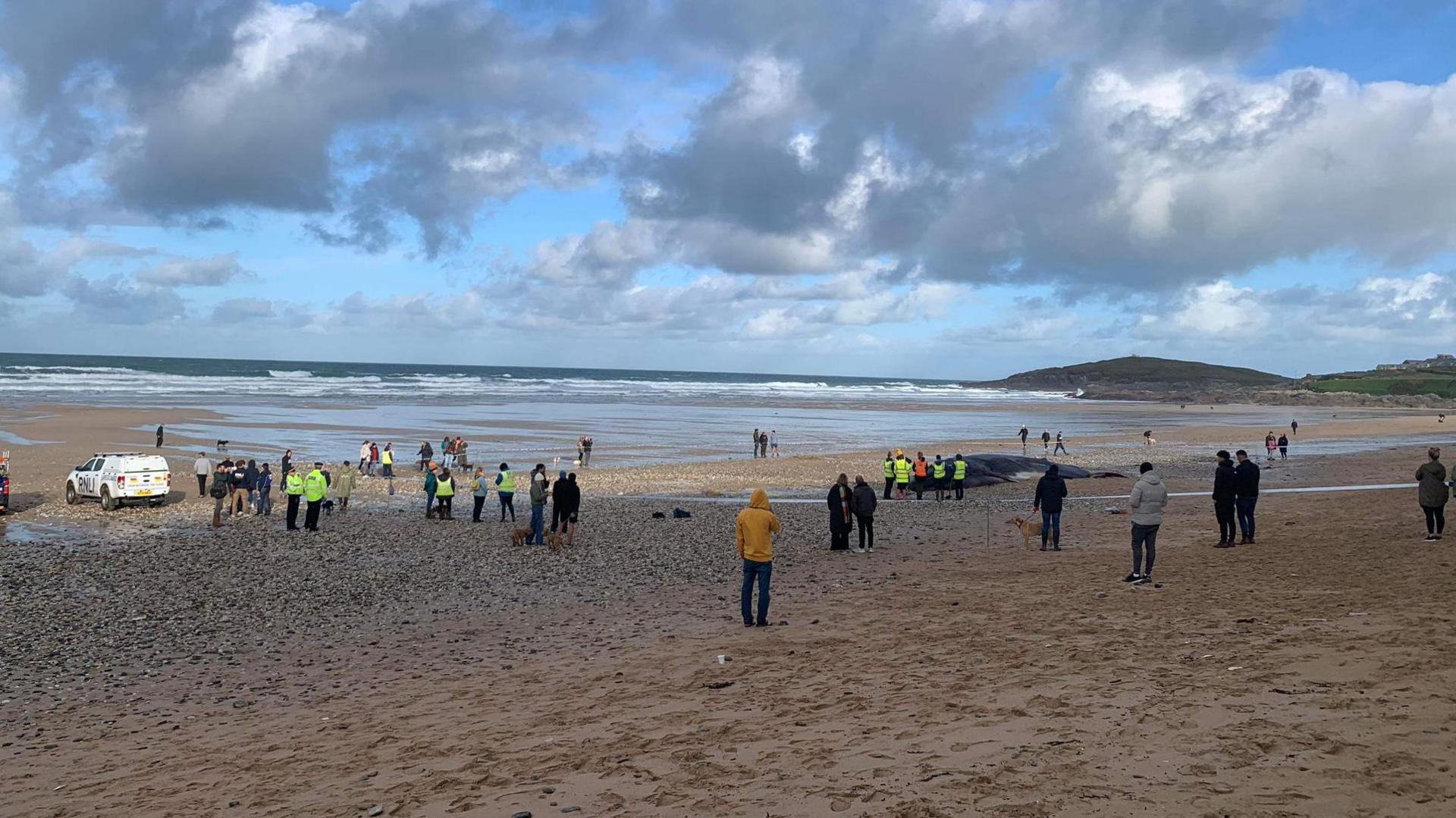
People have been asked to avoid the area
Ms Crosby asked people to avoid the area "for their own health and safety and so the volunteers and scientists can do their job".
Mr Barber, who was the first to discover the whale, told BBC Radio Cornwall he was "completely blown away" by its size.
"It's huge when you get up close to it," he said.
Follow BBC News South West on X (formerly Twitter), external, Facebook, external and Instagram, external. Send your story ideas to spotlight@bbc.co.uk, external.
- Published14 January 2023
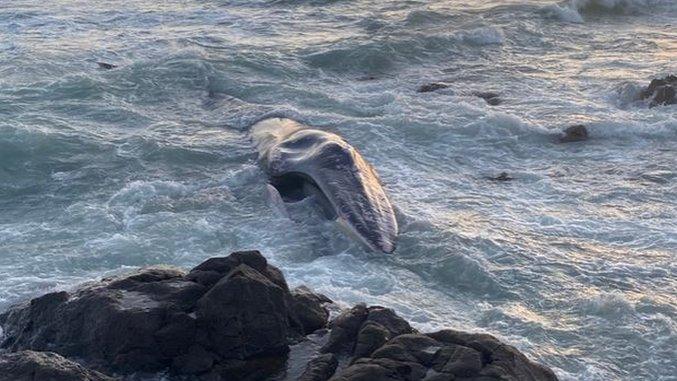
- Published9 June 2023
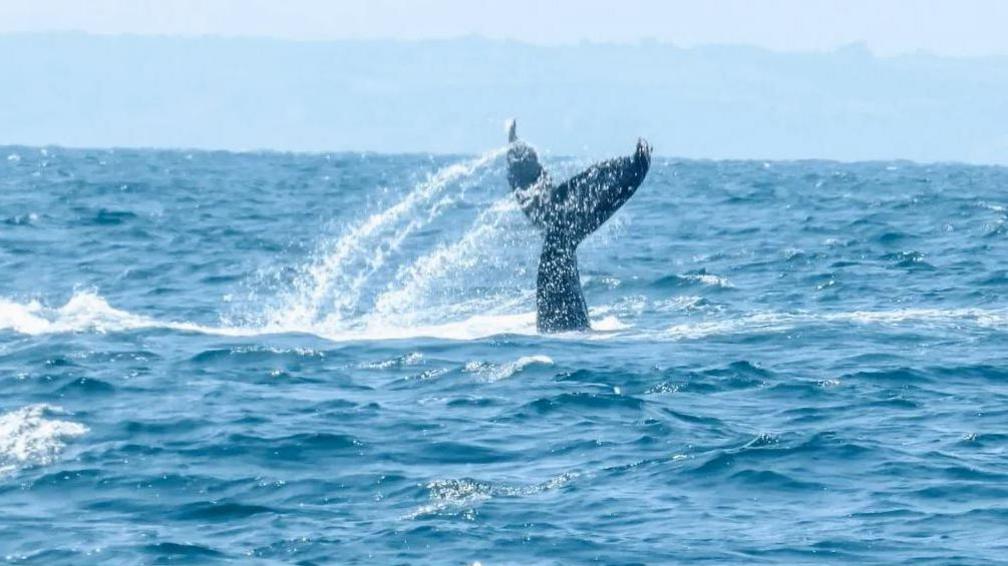
- Published26 January 2023
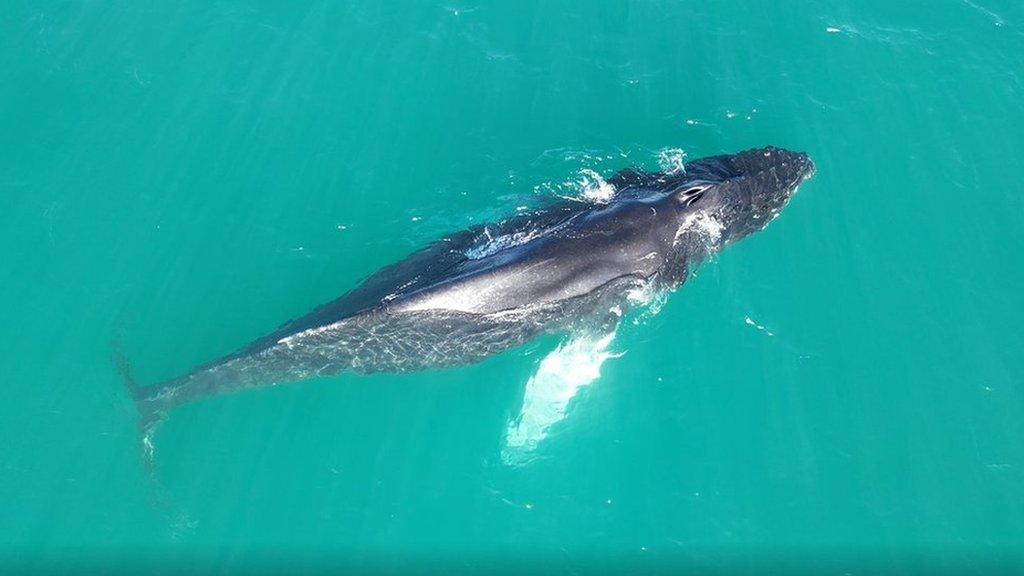
- Published30 April 2021
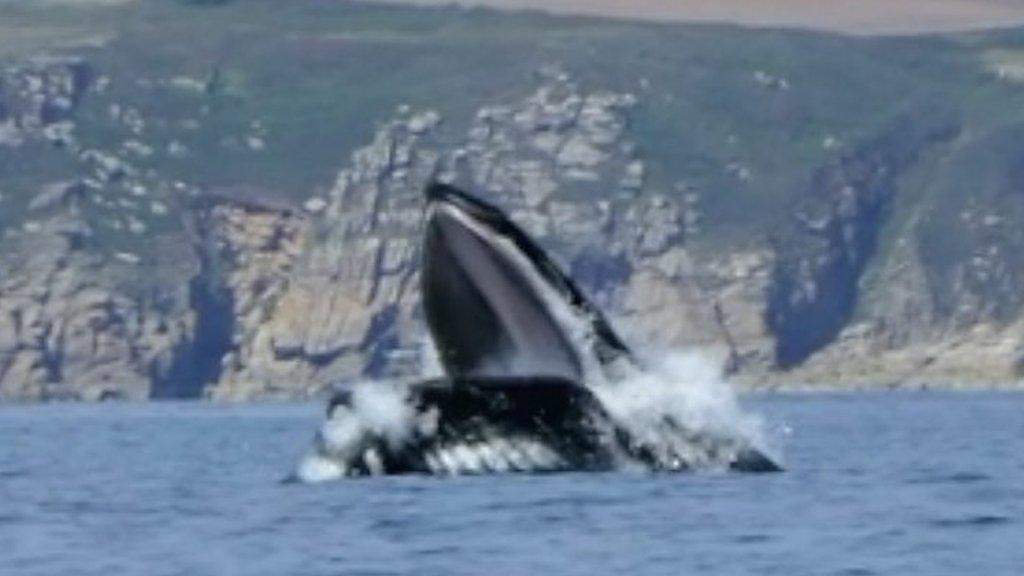
- Published9 August 2022
